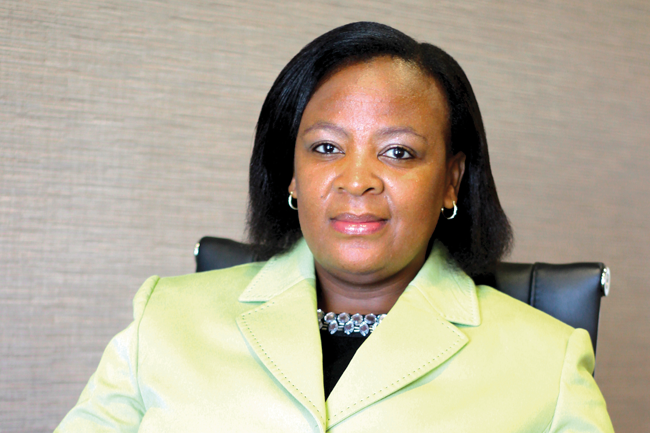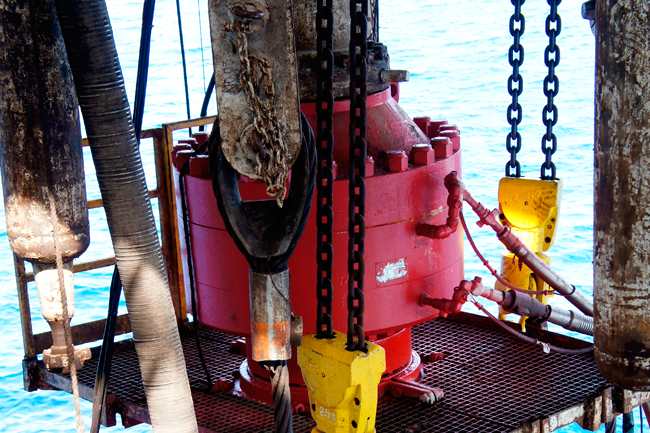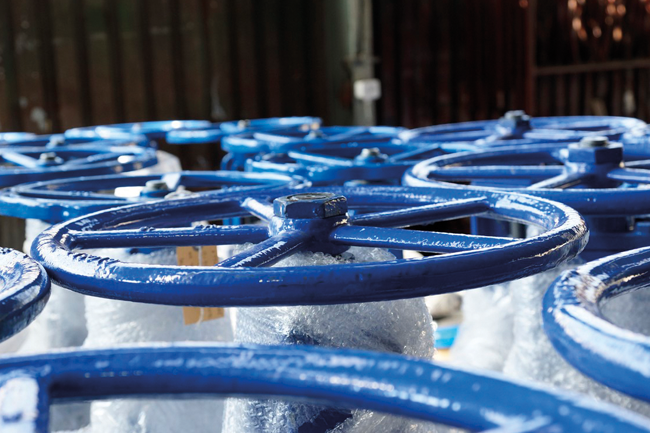In a recent interview, Lindiwe Mekwe, acting CEO of Petroleum Agency South Africa (PASA), says that the oil and gas industry has the potential to become one of the top contributors to South Africa’s GDP within the next two decades or so.
This, however, requires that the country attracts sufficient exploration leading to good discoveries, and is based on the assumption that regulatory issues will have been resolved.
‘Oil and gas development is, however, still in the exploration phase if you compare it with the established state of the minerals industry,’ says Mekwe.
Interpretation of geological and geophysical data suggests that South Africa has potential for major oil and gas discoveries both on- and offshore. Current proven reserves offshore include the gas and condensate fields off Mossel Bay (F-A and E-M fields), which have been in production for decades, and new proven reserves in the F-O gas field. Off the west coast, there are proven gas reserves in the Ibhubesi gas field, where Sunbird Energy, together with partner PetroSA, is planning a development that will include a small-scale LNG plant.
Onshore, there are proven reserves in gas fields operated by Tetra4 in Virginia (Free State province), currently being used to fuel a local bus network. Coal-bed methane has also been discovered in the Waterberg region of Limpopo by Anglo as well as by Badimo Gas and partners Kinetiko Energy, near Amersfoort, Mpumalanga.

PASA’s role is to regulate these and other such operations on behalf of government, and to perform the major functions of promotion of investment in exploration; regulation of exploration and production activities; and archiving and distribution of geological and geophysical data to would-be explorers. ‘It’s only through this data that we’re able to determine and process how much onshore and off-shore resources may exist, advise on investment and help mitigate risks,’ says Mekwe.
There is an excellent case to be made for investment in South Africa’s burgeoning oil and gas exploration and production sector, with shale gas representing a major opportunity. The US’ Energy Information Administration (EIA) has reported that South Africa has some of the largest potential shale resources in the world in the Karoo geological basin. The EIA has reported a potential shale gas resource of 380 trillion cubic feet (Tcf), while PASA’s own estimates are 205 Tcf.
The recent discoveries of major gas deposits off both Mozambique and Tanzania also send a very positive message for the east coast. The deepwater areas of the west and south coasts are completely unexplored and may hold vast potential.
However, there are challenges that PASA faces in attracting qualified explorers to South Africa. One of these is the delay in the finalisation and enactment of the new Mineral and Petroleum Resources Development (MPRD) Amendment Bill. PASA expects that a recent announcement by Minister of Mineral Resources Gwede Mantashe will speed up the enactment of the bill, which is with Parliament before being presented to President Cyril Ramaphosa for sign-off.
Regulatory uncertainty has resulted in a slowing down of exploration activity over the past few years, which has been exacerbated by the dramatic fall in the oil price. Exploration companies that have made discoveries have also been loath to proceed to production or struggled to fund development operations while the impact of the regulatory environment on their operations has been uncertain. Finalisation of the bill should revitalise the industry, just as the oil price is recovering.
Another major challenge for the industry in South Africa is the lack of infrastructure such as subsea and overland oil and gas pipelines. In countries with a mature oil and gas sector, established infrastructure makes development costs far lower and monetisation of discoveries far less of a hurdle. However, the South African government is committed to developing oil and gas infrastructure over the next 10 to 15 years.
South Africa is not known as an oil and gas-producing country, such as the likes of Angola or Nigeria. There is risk associated with exploring for oil and gas in an area such as South Africa where the geology is not as conducive to oil and gas formation and trapping, and this presents a further challenge to explorers.

The current fiscal regime applicable to oil and gas exploration as well as production recognises this risk and comprises fees related to exploration, corporate income tax, royalties, fiscal stability agreements, and payments to the Upstream Training Trust.
The trust is an NPO that contributes towards the development of scientific and engineering capacity in South Africa for the upstream petroleum industry through investment in the development of young people, with a specific focus on historically disadvantaged individuals. The agency was instrumental in creating the trust, as well as in its inclusion in oil and gas exploration agreements, and sees its activities as an imperative for transforming the industry. Transformation of the industry is high on PASA’s agenda and it is working closely with both the industry and government to achieve a more balanced approach to participation and ownership.
Traditionally, the oil and gas business and the energy business in general, has been and remains a very male-dominated domain. The agency would like to see this change and supports initiatives such as Women in Oil and Energy South Africa, and the American Association of Petroleum Geologists’ Professional Women in Earth Sciences.
While there are now more women involved in the industry locally, it is by no means representative, and so Mekwe calls on her male counterparts to recognise the potential of women, particularly in the executive realm.
In today’s world, oil and gas are arguably the most critical energy resources, and PASA is in total support of those entering the South African oil and gas exploration and production industries. The agency is fully committed to ensuring that the government and policy-makers sustain the sector for the benefit of all involved and will do everything in its power to advance the industry.
Tel: +27 (0)21 938 3500
Fax: +27 (0)21 938 3520
[email protected]
www.petroleumagencysa.com
CAPTIONS:
Lindiwe Mekwe, acting CEO of Petroleum Agency South Africa
South Africa’s oil and gas sector has the potential to emerge as a top contributor to the country’s GDP






